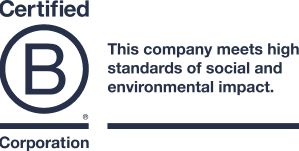Ask any engineer and they will lament the paradox of fixing a problem here only to have a consequential something break over there.
When I think back to my graduate school years in Environmental Management, it seemed every positive step towards sustainability led to an unsustainable consequence. A frustration that can create a stasis of analysis paralysis.
What is the right move, right decision, right material? Recycled plastics vs. plastic leaching. Electric care v. mining for rare earth elements. It's a constant give and take of weighing what drives the most impact and what is a consequence we just have to accept. It is easy to agonize to the point of inaction.
Remember the decades old Cape Wind issue... The now defunct construction project of towering windmills in Nantucket Sound meant renewal energy but caused bird deaths and a few other subsequent issues. Over 10 years of back and forth over what environmental issue was more important (and some heavy anti-wind lobbying from wealthy neighbors with NIMBY complaints).
So how do we weigh the options? How do we live more sustainably in an increasingly complex world?
At FiveADRIFT we are striving to keep both ends of the equation right.
One of the most common questions we get asked: Why don't we use recycled plastic? We think as a material recycled plastic is fantastic. Our planet is overwhelmed by the amount of plastic trash and debris. Even if we stopped using plastic today we would still have trillions of pounds to manage. Repurposing that trash into products is a great idea. Furniture, playground equipment, the options are endless. However, the challenge with recycled plastic in clothing and beach towels is that when washed micro pieces of the fabric leach into the water supply and end up in our oceans. This type of plastic can be the most dangerous because it is the hardest to find and easiest to ingest not only by sea animals but also those of us who will eat those animals. If we can focus our efforts on recycling plastics into products that do not affect our oceans we are all for it. So for now, we are using a hybrid of cotton and hemp in our beach towels.
Wait... doesn't cotton use oodles of water? Yes, cotton is one of the most water dependent crops. Thank goodness for the hemp. Hemp is not only one of the strongest natural fibers it's also fast-growing and as an added bonus it repels UV rays...perfect protection for those days at the beach. Because of its strength and durability hemp requires no pesticides and very little water for growth. In addition, hemp is often said not to wear out but wear in. It gets software with every wash which means we don't need to soak our beach towels in softening chemicals during manufacturing. In our opinion hemp is pretty much perfect.
The truth is we are constantly educating ourselves and improving our products. Most importantly not only are we working to make the best products we are always using all (that's 100%) of our profits to cleaning the ocean. And we're pretty proud of that too.
You can learn more about our product lifecycle and our sustainability goals for the future.


